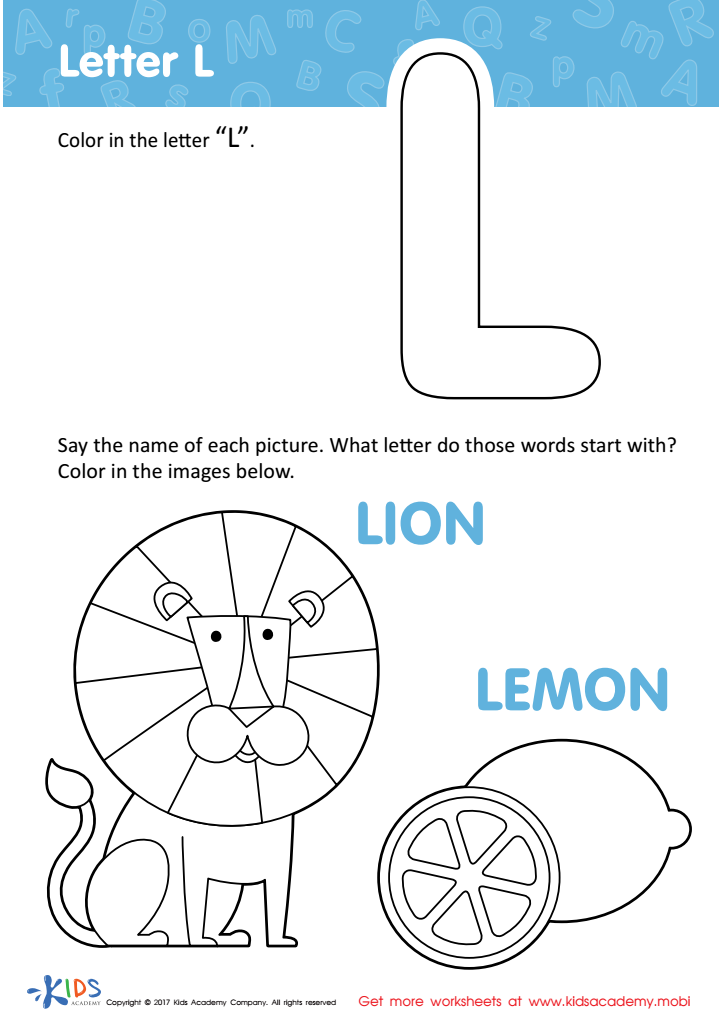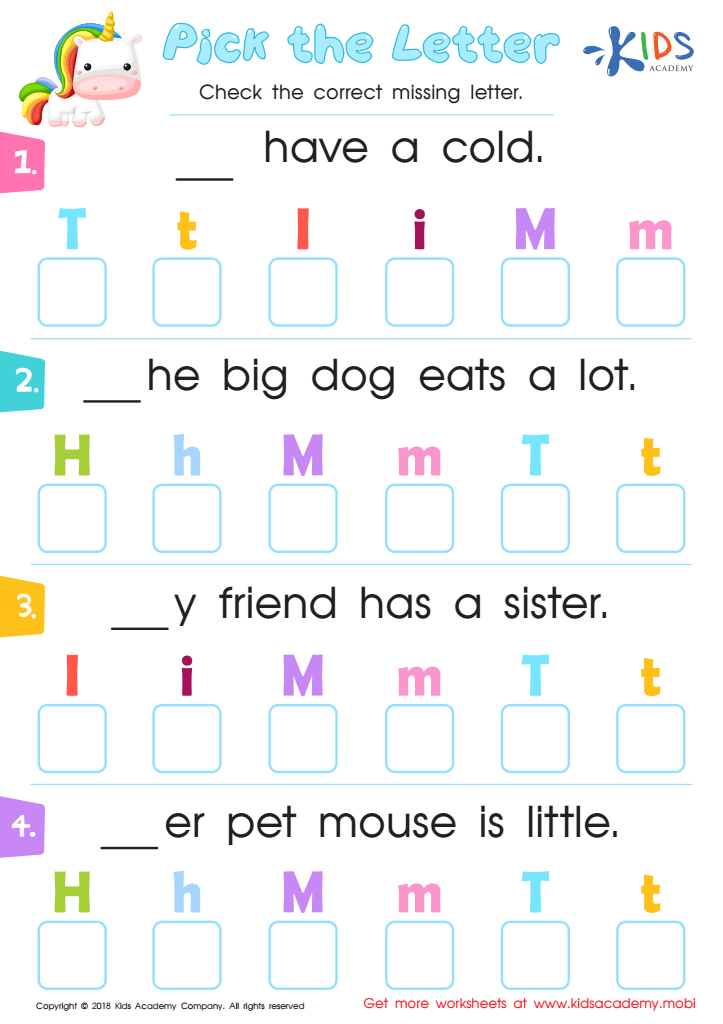Letter-sound association Normal Letter Recognition Worksheets for Ages 7-9
3 filtered results
-
From - To
Enhance phonemic awareness with our Letter-sound association Normal Letter Recognition Worksheets for Ages 7-9. These engaging worksheets help young learners seamlessly connect individual letters with their respective sounds, reinforcing essential reading skills. Designed to build foundational literacy, our tools enhance spelling and pronunciation. Ideal for both classroom use and home practice, these expertly crafted resources ensure children achieve the milestones necessary for confident reading. Boost your child's literacy journey with activities that are as educational as they are fun. Embrace learning with structured exercises tailored to support every child's unique pace and progress in letter-sound recognition.


Letter E Coloring Sheet


Letter L Coloring Sheet


Pick the Letter Worksheet
Letter-sound association and normal letter recognition are crucial foundational skills for children aged 7-9, playing a vital role in their literacy development. During these years, children transition from "learning to read" to "reading to learn," making it imperative for parents and teachers to ensure these skills are firmly established.
Letter-sound association enables children to decode words independently. By understanding how letters combine to form sounds, kids can tackle unfamiliar words and improve reading fluency. This skill directly influences their ability to comprehend text, laying the groundwork for more complex literacy tasks in the future.
Normal letter recognition refers to the ability to quickly and accurately identify letters. This skill is essential because it underpins all higher-order reading abilities. Children who can recognize letters effortlessly can focus more on comprehending and interpreting text rather than on decoding individual letters or words.
Poor letter-sound association and letter recognition skills can result in reading difficulties, negatively impacting academic performance and self-esteem. Teachers and parents should ensure engaging, multisensory learning experiences to support mastery in these areas.
Investing time and effort in developing these skills during the early years sets up children for academic success. Proficiency in reading not only benefits education but also enriches overall communication skills, fostering lifelong learning and curiosity.

 Assign to My Students
Assign to My Students




















